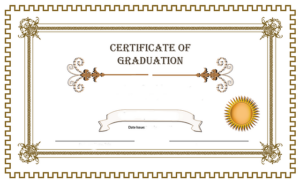Optimizing UK Technical Guidelines: Localized Solutions for Global Britain
In a multicultural UK, effective communication hinges on well-structured, localized technical guidelines that cater to diverse linguistic backgrounds. Professional translation services bridge language gaps, adapt content to cultural nuances, and ensu…….

In a multicultural UK, effective communication hinges on well-structured, localized technical guidelines that cater to diverse linguistic backgrounds. Professional translation services bridge language gaps, adapt content to cultural nuances, and ensure critical information reaches every sector, playing a crucial role in maintaining uniform standards. Specialized translation services for UK Technical Guidelines and Standards are essential for seamless communication, compliance, and global adoption across the nation.
Are your UK guidelines truly fit for purpose? In today’s globalised landscape, ensuring technical documentation is localized and structured for the British market is paramount. This article explores the critical importance of well-structured, localized guidelines in the UK, delving into common challenges, the transformative role of translation services, and best practices to ensure accuracy and consistency. Discover successful case studies, learn how to choose the right agency, and explore cost-effective solutions for optimizing your UK technical guideline localization.
- Understanding the Importance of Localized Guidelines in the UK
- Common Challenges with UK Technical Documentation
- The Role of Translation Services in Overcoming Language Barriers
- Ensuring Accuracy and Consistency in Translations
- Best Practices for Localizing Technical Standards
- Case Studies: Successful Localization Projects in Britain
- Choosing the Right Translation Agency for Your Needs
- Cost-Effective Solutions for UK Guideline Localization
- The Future of Localization in a Globalized UK
Understanding the Importance of Localized Guidelines in the UK

In the diverse and multicultural landscape of the UK, where people from various linguistic backgrounds coexist, having well-structured and localized guidelines is paramount for effective communication and compliance. Localized guidelines play a crucial role in ensuring that technical standards and regulations are accessible, understandable, and adhered to by all sectors, especially in industries like healthcare, manufacturing, and technology, which heavily rely on uniform standards.
The significance of localized UK technical guidelines cannot be overstated, especially when considering the country’s complex history with language variations and its growing global interactions. Professional translation services for these guidelines are essential to bridge the gap between different languages, ensuring that critical information reaches every corner of society. This process involves not just translating words but also adapting content to suit cultural nuances, making technical instructions relevant and actionable for all UK residents and businesses.
Common Challenges with UK Technical Documentation

The UK, with its diverse linguistic landscape, presents unique challenges when it comes to technical documentation. One of the primary hurdles is ensuring that guidelines and standards are accurately translated and localized for different regions within the country. This process becomes increasingly complex when dealing with specialized terminology and industry-specific jargon, which often require expert knowledge to convey precisely in multiple languages.
Moreover, maintaining consistency across various translations can be daunting. Different dialects and regional variations in English necessitate a nuanced approach to avoid misinterpretations. Specialized translation services for UK technical guidelines and standards play a pivotal role in overcoming these challenges, ensuring that documentation is not only linguistically accurate but also culturally sensitive, thereby facilitating effective communication and understanding among diverse audiences across the UK.
The Role of Translation Services in Overcoming Language Barriers

In today’s globalized world, ensuring clear communication across languages is paramount, especially when it comes to technical guidelines and standards. The UK, with its diverse linguistic landscape, relies on effective translation services to bridge the gap between different linguistic communities. When it comes to localizing technical documents, accurate translations are essential to avoid misunderstandings and ensure compliance.
Translation services play a pivotal role in this process by providing professional interpretations of UK guidelines, making them accessible to a wider audience. These services employ skilled translators who possess not only language proficiency but also a deep understanding of cultural nuances. By tailoring translations to the target audience’s needs, they facilitate better comprehension and adherence to standards, thereby fostering a more inclusive environment for all stakeholders involved.
Ensuring Accuracy and Consistency in Translations

Ensuring accuracy and consistency in translations is paramount when it comes to UK technical guidelines and standards. When localizing such documents, every effort must be made to convey the original meaning precisely and unambiguously. Professional translation services for UK guidelines should employ native speakers with deep industry knowledge to capture the nuances of terminology and context. This meticulous approach guarantees that essential information is not lost in translation, ensuring compliance and clarity for all stakeholders.
Consistency is equally vital. Maintaining a uniform style and tone throughout the translated document reinforces its credibility and professionalism. Translation memory tools can be leveraged to standardize phrases and terms, preventing repetition while guaranteeing coherence. By adhering to these best practices, UK guidelines become accessible and understandable to a broader audience, facilitating their implementation and adoption across diverse sectors.
Best Practices for Localizing Technical Standards

When localizing technical standards and guidelines for the UK market, adherence to best practices is essential. One crucial aspect is ensuring accurate and culturally appropriate translation services. Engaging professional translators who are native speakers or have extensive experience in the target industry is vital. They can convey the nuances of the original content effectively, avoiding potential misunderstandings or errors.
Additionally, localization should consider regional differences and legal requirements specific to the UK. This may involve adapting terminology and formatting to align with local standards and regulations. Incorporating feedback from subject matter experts based in the UK can help refine the localized guidelines, ensuring they remain technically sound and relevant to the intended audience.
Case Studies: Successful Localization Projects in Britain

In recent years, numerous organizations have successfully navigated the complex landscape of localizing technical guidelines and standards in the UK, proving that a well-structured approach can yield remarkable results. These case studies offer valuable insights into the effectiveness of specialized translation services tailored for British contexts. One prominent example involves a global engineering firm that needed to adapt their safety protocols for use across the UK market. By employing experienced translators familiar with local regulations and terminologies, they ensured their guidelines were not only accurately translated but also seamlessly integrated into the British workplace culture.
Another successful project focused on localizing digital marketing strategies for an international e-commerce brand expanding into the UK. The challenge lay in adapting messaging to resonate with British consumers while adhering to cultural nuances. Translation services played a pivotal role in overcoming this hurdle, resulting in a seamless market entry and robust customer engagement. These case studies underscore the significance of professional translation in ensuring that technical guidelines and standards are not just translated but also localized, catering to the specific needs and preferences of the UK audience.
Choosing the Right Translation Agency for Your Needs

When it comes to ensuring your UK technical guidelines and standards are well-structured and localized, selecting the right translation agency is paramount. Look for an agency that specializes in providing high-quality translation services tailored to regulatory documents and has a proven track record in serving clients within the UK market. Experience in handling complex terminology specific to your industry is key to achieving accurate translations that align with local guidelines.
Consider agencies offering native-speaker translators who understand not just the language, but also the cultural nuances of the target audience. This ensures that your technical documentation is not only linguistically correct but also culturally appropriate for distribution within the UK. Reputable agencies should provide transparency in their processes and quality assurance measures, giving you confidence in the final product.
Cost-Effective Solutions for UK Guideline Localization

Many organizations face a significant challenge when it comes to localizing technical guidelines and standards for the UK market. The process of translation can be costly, especially for extensive documents. However, there are cost-effective solutions available that can make this task more manageable. One effective strategy is to leverage professional translation services specializing in UK technical content. These services employ linguists who understand not only the language but also the nuances and regulations specific to the British context. By outsourcing translation, companies can ensure accuracy while minimizing expenses.
Additionally, utilizing machine translation tools alongside human experts can further reduce costs without compromising quality. Advanced MT systems have improved significantly, offering more accurate translations for technical texts. This initial step can be followed by a review process where linguistic professionals refine the output, ensuring it meets the high standards required for UK guidelines. Such an approach allows for efficient localization, making it an attractive option for businesses aiming to expand their reach within the UK market.
The Future of Localization in a Globalized UK

In today’s interconnected world, the UK’s technical guidelines and standards must evolve to meet the challenges of a globalized landscape. The future of localization in the UK involves ensuring that these guidelines are not only well-structured but also tailored to diverse linguistic and cultural contexts. Translation services play a pivotal role in this endeavor, enabling precise communication across languages and fostering better international cooperation.
By leveraging advanced translation technologies and expertise, UK organizations can enhance the accessibility and effectiveness of their technical standards. This includes adapting content for different target audiences worldwide, ensuring compliance with local regulations, and facilitating the adoption of best practices globally. Such efforts not only promote innovation but also strengthen the UK’s position as a leader in international standards-setting.
In a diverse and globalized UK, well-structured and localized technical guidelines are essential. By understanding the unique challenges, leveraging translation services, and adopting best practices, organizations can ensure their standards meet the needs of a broad audience. The successful case studies highlighted demonstrate the transformative power of effective localization, paving the way for a future where all UK technical documentation is accessible and precise, fostering innovation across borders. For businesses seeking to implement these changes, choosing the right translation agency is key to achieving cost-effective, high-quality results in the localized technical guideline space.






